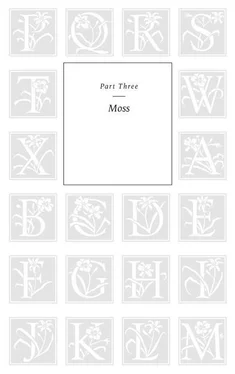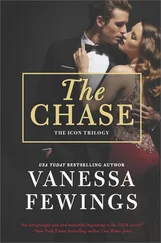Vanessa Diffenbaugh - The Language of Flowers
Здесь есть возможность читать онлайн «Vanessa Diffenbaugh - The Language of Flowers» весь текст электронной книги совершенно бесплатно (целиком полную версию без сокращений). В некоторых случаях можно слушать аудио, скачать через торрент в формате fb2 и присутствует краткое содержание. Жанр: Старинная литература, на английском языке. Описание произведения, (предисловие) а так же отзывы посетителей доступны на портале библиотеки ЛибКат.
- Название:The Language of Flowers
- Автор:
- Жанр:
- Год:неизвестен
- ISBN:нет данных
- Рейтинг книги:4 / 5. Голосов: 1
-
Избранное:Добавить в избранное
- Отзывы:
-
Ваша оценка:
- 80
- 1
- 2
- 3
- 4
- 5
The Language of Flowers: краткое содержание, описание и аннотация
Предлагаем к чтению аннотацию, описание, краткое содержание или предисловие (зависит от того, что написал сам автор книги «The Language of Flowers»). Если вы не нашли необходимую информацию о книге — напишите в комментариях, мы постараемся отыскать её.
The Language of Flowers — читать онлайн бесплатно полную книгу (весь текст) целиком
Ниже представлен текст книги, разбитый по страницам. Система сохранения места последней прочитанной страницы, позволяет с удобством читать онлайн бесплатно книгу «The Language of Flowers», без необходимости каждый раз заново искать на чём Вы остановились. Поставьте закладку, и сможете в любой момент перейти на страницу, на которой закончили чтение.
Интервал:
Закладка:
Elizabeth coiled the flowered rope. “Energy in adversity.”
Nothing could have more succinctly captured her mind-set. Since deciding to communicate with her sister through flowers, Elizabeth had been constantly in motion, planting seeds, watering, checking the progress of half-open buds, and waiting—a waiting that was like an action itself, dynamic and pacing—for a response.
“Come with me,” Elizabeth said, climbing into her truck and setting the coiled chamomile between us.
We drove to Catherine’s. Elizabeth left the engine running as she hopped out, wound the flowered string around the wooden post of Catherine’s mailbox, and tucked the note inside. Climbing back into the truck, she continued driving down the road, away from the vineyard.
“Where are we going?” I asked.
“Shopping,” Elizabeth said. Her hair flapped around her face in the wind, and she pulled it back into a rubber band quickly, steering with her knees. She shot a mischievous smile in my direction.
“Where?” I asked. There was a general store less than a mile away, where Elizabeth had purchased my rain parka and gardening shoes, but it was in the opposite direction.
“Chestnut Street,” she said. “San Francisco. They have a whole row of children’s boutiques, the kind with two-hundred-dollar velour sweat suits for newborns, toddler dresses made out of silk organza—that sort of thing. One dress for your adoption will cost me more than what I can get for two tons of grapes—but if not now, when? You’re ten, you know? Next week you’ll be my little girl, but you won’t be a little girl much longer. I have to dress you up while I can.” She smiled at me again, her smile an invitation.
I inched closer to her, pressing my head into her shoulder as we drove. She’d taught me to sit up straight and away from her in the truck, so that we wouldn’t get pulled over for a seat belt violation, but today, her smile said, was an exception. She drove with one arm on the steering wheel, the other around my shoulders, squeezing me to her. I’d never been taken shopping for new clothes, not once, and it seemed to me the perfect way to start my life as someone’s daughter. I hummed along with the oldies on the radio as we drove over the bridge and into the city, struggling with the conflicting emotions of wanting the day to last forever and wanting the day to be over and the next two as well. My court date was only three days away.
On Chestnut Street, Elizabeth parked the car, and I followed her into an open doorway. The shop was empty except for a saleswoman standing at a glass counter, arranging diamond-studded clips to a felt cutout of a tree. “May I help you?” she asked, her smile taking me in with what appeared to be genuine interest. “Looking for something special?”
“Yes,” Elizabeth said. “Something for Victoria.”
“And how old are you, sweetheart? Seven? Eight?”
“Ten,” I said.
The saleswoman looked embarrassed, but her words didn’t offend me. “I was warned never to guess,” she said. “Let me show you what I have in your size.” I followed her to the back of the store, where a single row of dresses hung opposite a mirror with a wooden ballet bar. Elizabeth grasped the bar and did an exaggerated squat, her knees bending deeply at angles, her toes pointed out. She was thin and pointy like a classical ballerina, but not even close to graceful. We both laughed.
I thumbed through the dresses once, then a second time. “If there isn’t anything you like,” Elizabeth said from behind me, “there’re other shops.”
But that wasn’t the problem. I liked all the dresses, every single one. My hand settled on the velvet ribbons of a halter. Pulling the dress off the bar, I held it up against my body. It was only a size eight but reached well below my knees. The light blue top was separated from the patterned skirt by a brown velvet ribbon that tied behind the back. It was the pattern of the full skirt I was drawn to: raised brown-velvet flowers over a background of blue. The concentric petals reminded me of hundred-petaled roses or chrysanthemum. I looked at Elizabeth.
“Try it on,” she said.
In the small dressing room, I took off my clothes. Standing in front of the mirror in my white cotton underpants, Elizabeth seated behind me, I took in my pale image, skin light and unmarked, my waist straight over narrow hips. Elizabeth studied my body with such pride I imagined it to be the way a mother looked at a biological daughter, whose every limb had been formed within her body.
“Arms up,” she said. Slipping the dress over my head, she tied the ribbons of the halter-top under my hair and the second set of ribbons above my waistline.
The dress fit me perfectly. I gazed at my reflection, my arms held out stiffly on either side of the full skirt.
When my eyes met Elizabeth’s, her face was so full of emotion I couldn’t tell if she would laugh or cry. She pulled me to her, her forearms under my armpits, hands clasped over my chest. The back of my head pressed into her ribs.
“Look at you,” she said. “My baby.” And somehow, in that moment, her words spoke the truth. I had the vague sense of being a very young child—a newborn, even—tightly held and cradled in her arms. It was as if the childhood I had lived belonged to someone else, a girl who no longer existed, a girl who had been replaced by the one in the mirror.
“Catherine will love you, too,” Elizabeth whispered. “You’ll see.”
15 .
Before the start of wedding season, Renata hired me full-time. She offered me benefits or a bonus—not both. I was perfectly healthy and tired of relying on Grant to drive me to and from the flower farm, so I took the cash.
The drummer in Natalya’s band sold me his old hatchback. His new drum kit—which seemed significantly louder than his old one—did not fit inside, so he took my bonus and gave me the pink slip. It seemed like a fair exchange, but I knew nothing about the value of cars. I didn’t have a license and didn’t know how to drive. Grant towed the hatchback from Bloom to the farm on the back of his flower truck and didn’t let me out of the front gate for weeks. When he did, it was just to drive to the drugstore and back. Still, I was terrified. It took another month before I was ready to drive into the city alone.
That spring I spent mornings working for Renata and afternoons searching for the remaining flowers for my dictionary. After capturing everything on Grant’s farm, I moved on to Golden Gate Park and the waterfront. All of Northern California was a botanical garden, with wildflowers springing up between busy freeways and chamomile thriving in sidewalk cracks. Sometimes Grant accompanied me; he was good at plant identification but tired quickly of small, square-block city parks and skinny sunbathers.
On weekends, if Renata and I finished in time, Grant and I went hiking in the redwoods north of San Francisco. We always sat in the parking lot long enough to see which hiking trails were the most crowded before choosing our direction. Alone in the forest, Grant was content to watch me photograph for hours, and he would talk in detail about every plant species and its relation to the others in the ecosystem. When he finished telling me what he knew, he would lean back against the soft moss covering the trunk of a redwood tree and look up through the branches to the pale sky. Silence stretched between us, and I always expected him to bring up Elizabeth, or Catherine, or the night he accused me of lying. I spent hours thinking of what I would say, how I would explain the truth without turning him against me forever. But Grant did not bring up the past, not in the forest or anywhere else. It seemed he was content to keep our life together confined to the flowers and the present moment.
Читать дальшеИнтервал:
Закладка:
Похожие книги на «The Language of Flowers»
Представляем Вашему вниманию похожие книги на «The Language of Flowers» списком для выбора. Мы отобрали схожую по названию и смыслу литературу в надежде предоставить читателям больше вариантов отыскать новые, интересные, ещё непрочитанные произведения.
Обсуждение, отзывы о книге «The Language of Flowers» и просто собственные мнения читателей. Оставьте ваши комментарии, напишите, что Вы думаете о произведении, его смысле или главных героях. Укажите что конкретно понравилось, а что нет, и почему Вы так считаете.












